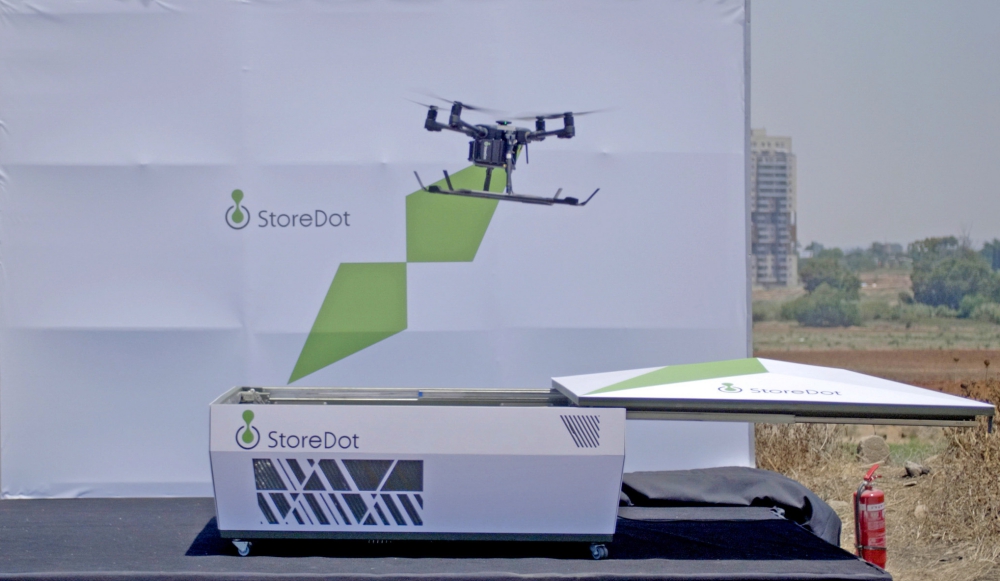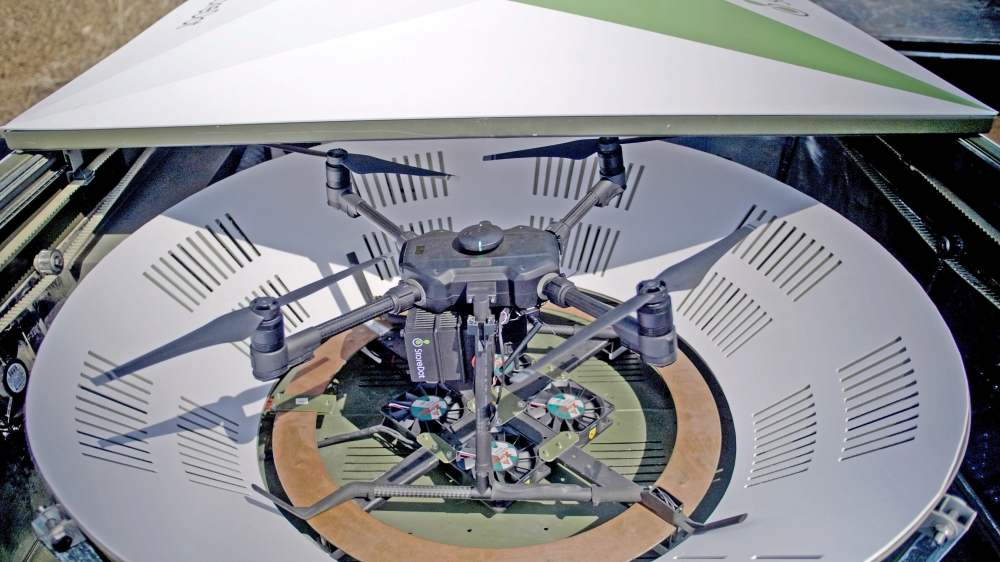Twelve months ago, ultra-fast charging (UFC) pioneer, StoreDot, achieved a world first with its partner BP by successfully fully-charging a two-wheeled electric vehicle in just 5 minutes. Today, the company is launching its award-winning UFC technology for the drone industry, having achieved its mission of fully-charging a commercial drone in five minutes – another world first.
This milestone overcomes two major barriers associated with slow charging times that has prevented the drone industry from realizing its full potential and finally makes continuous, fully-autonomous drone operation a reality.
Today, it typically takes between 60 to 90 minutes to charge a commercial drone, with full charge giving a flight time of just over 30 minutes. As a result, drones spend far longer in the charging station that in operation – an unacceptable level of downtime for any application. To overcome this problem, additional batteries must be purchased and swapped out between flights. This process is not only costly, but also requires a ‘man-in-the-loop’ to replace the batteries, which ultimately negates one of the main benefits of drone use – autonomous operation.
The need for a person to be involved in the charging process also limits drone users’ range of operation, as they are restricted to locating charging stations at sites that are easily accessible to humans. This means that drones currently have to spend much of their limited flight time travelling to and from the nearest charging point, greatly reducing their operational efficiency. It also restricts the use of drones in harsh or dangerous terrains – often where they could bring the greatest benefits.
Dr. Doron Myersdorf, CEO of StoreDot comments:
“The launch of a UFC solution for drones changes the game. By reducing battery charging time to just 5 minutes – which is up to 18 times faster than existing drone batteries – and eliminating the need for human intervention, drone operators have far greater freedom about where they can site charging stations. As a result, continuous, fully-autonomous drone operation is finally being made a reality.
“Drones will now be able to spend much more of their valuable flight time engaged in actual missions, greatly extending their range, rather than having to return to base to have their battery swapped out. At the same time, UFC will also enable drone users to expand their operations into regions they could not previously access. Both of these factors will significantly increase operational efficiencies and profitability, making the business case for drone use much more attractive than ever before,” he adds.
When used with the required ultra-fast charging station, StoreDot FlashBattery technology drastically reduces drone charging times with very little tradeoff in terms of energy density, meaning that flight time is only slightly reduced. Crucially, this is achieved at a price point that is competitive with existing drone battery technology when the total cost of operation is considered. Sample cells are now available to drone manufacturers for testing, with full commercialization expected end of this year.
“In applications where cutting response times is critical, and where organizations must also demonstrate a commitment to reducing their carbon footprint, the use of drones can play a crucial role in helping to establish a competitive advantage,” Dr. Myersdorf explains. “However, commercial drone ventures haven’t really taken off up until now as they haven’t yet delivered an economical business model. For these types of companies, UFC technology can hugely improve and extend their existing operations and make them much more profitable. We believe this technology can also open the door for new players to enter this space and extend their service offering, making drones a more attractive proposition as a new revenue stream.”
StoreDot is an award-winning, Israeli-based battery and materials innovation leader with a proven track record of bringing transformative change to the mobility industry with its unique UFC FlashBattery technology. In collaboration with its strategic partners – BP, Daimler, TDK and EVE Energy – it is making huge strides in helping to increase mainstream adoption of electric vehicles by overcoming two of the biggest barriers – range and charging anxiety. In 2019, it demonstrated the world’s first full charge of a two-wheeled vehicle. It is now on track to achieve its next electric vehicle milestone by the end of 2021 – the five-minute charge of a four-wheeled passenger vehicle.
Source: Press Release


